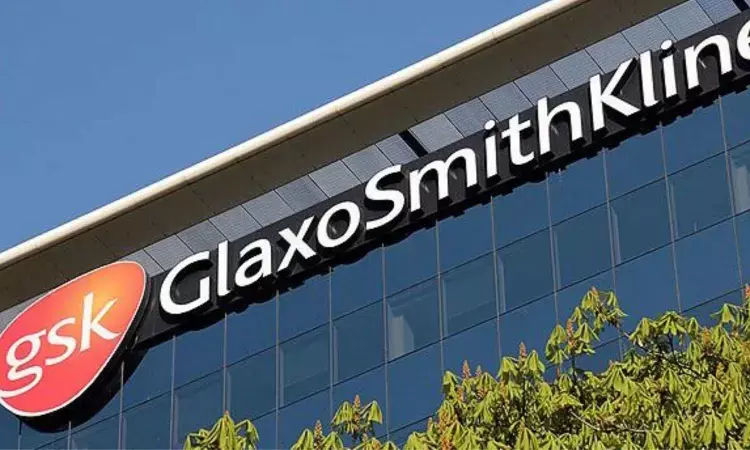- Home
- Medical news & Guidelines
- Anesthesiology
- Cardiology and CTVS
- Critical Care
- Dentistry
- Dermatology
- Diabetes and Endocrinology
- ENT
- Gastroenterology
- Medicine
- Nephrology
- Neurology
- Obstretics-Gynaecology
- Oncology
- Ophthalmology
- Orthopaedics
- Pediatrics-Neonatology
- Psychiatry
- Pulmonology
- Radiology
- Surgery
- Urology
- Laboratory Medicine
- Diet
- Nursing
- Paramedical
- Physiotherapy
- Health news
- Fact Check
- Bone Health Fact Check
- Brain Health Fact Check
- Cancer Related Fact Check
- Child Care Fact Check
- Dental and oral health fact check
- Diabetes and metabolic health fact check
- Diet and Nutrition Fact Check
- Eye and ENT Care Fact Check
- Fitness fact check
- Gut health fact check
- Heart health fact check
- Kidney health fact check
- Medical education fact check
- Men's health fact check
- Respiratory fact check
- Skin and hair care fact check
- Vaccine and Immunization fact check
- Women's health fact check
- AYUSH
- State News
- Andaman and Nicobar Islands
- Andhra Pradesh
- Arunachal Pradesh
- Assam
- Bihar
- Chandigarh
- Chattisgarh
- Dadra and Nagar Haveli
- Daman and Diu
- Delhi
- Goa
- Gujarat
- Haryana
- Himachal Pradesh
- Jammu & Kashmir
- Jharkhand
- Karnataka
- Kerala
- Ladakh
- Lakshadweep
- Madhya Pradesh
- Maharashtra
- Manipur
- Meghalaya
- Mizoram
- Nagaland
- Odisha
- Puducherry
- Punjab
- Rajasthan
- Sikkim
- Tamil Nadu
- Telangana
- Tripura
- Uttar Pradesh
- Uttrakhand
- West Bengal
- Medical Education
- Industry
GSK regulatory submission accepted for review by Japanese regulator for Nucala use in adults with chronic rhinosinusitis with nasal polyps

London: GSK plc has announced that the Japanese Ministry of Health, Labour and Welfare (MHLW) has accepted for review a supplementary new drug application (sJNDA) for Nucala (mepolizumab), a monoclonal antibody that targets interleukin-5 (IL-5), as a treatment for chronic rhinosinusitis with nasal polyps (CRSwNP) in adult patients.
The sJNDA is based on results of the pivotal phase III MERIT trial which studied the efficacy and safety of mepolizumab over a 52-week period in a population of Japanese, Chinese and Russian patients with inadequately controlled CRSwNP or eosinophilic chronic rhinosinusitis (ECRS) as well as data from the global phase III SYNAPSE study, which explored the effect of mepolizumab vs. placebo in more than 400 patients with CRSwNP.
CRSwNP/ECRS affects 2-4% of the general population. In Japan, it is estimated that there are 2 million people with chronic sinusitis, of which about 200,000 are subject to surgery due to nasal polyps. CRSwNP is caused by chronic inflammation of the nasal lining. Elevated levels of IL-5 are associated with CRSwNP as a result of T2 inflammation, which can cause soft tissue growth, known as nasal polyps that develop in the sinuses and nasal cavity. People with CRSwNP experience symptoms such as nasal obstruction, loss of smell, facial pressure, sleep disturbance and nasal discharge. Surgery may be indicated for severe cases. However, polyps have a strong tendency to reoccur, often leading to repeat surgery.
If approved, mepolizumab would be the first anti-IL-5 biologic for adult patients with inadequately controlled CRSwNP in Japan. Mepolizumab is approved in Japan as a treatment for bronchial asthma in children aged 6 years or older and in adults with refractory asthma whose symptoms are inadequately controlled with standard treatment and also for the treatment of adult patients with eosinophilic granulomatosis with polyangiitis (EGPA) inadequately responding to the current treatment.
Ruchika Sharma joined Medical Dialogue as an Correspondent for the Business Section in 2019. She covers all the updates in the Pharmaceutical field, Policy, Insurance, Business Healthcare, Medical News, Health News, Pharma News, Healthcare and Investment. She has completed her B.Com from Delhi University and then pursued postgraduation in M.Com. She can be contacted at editorial@medicaldialogues.in Contact no. 011-43720751


